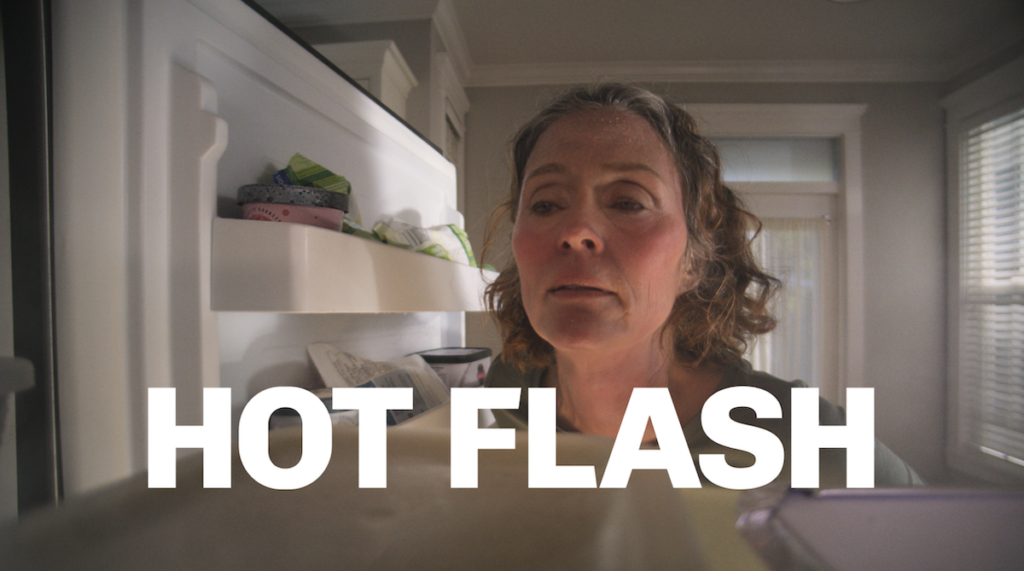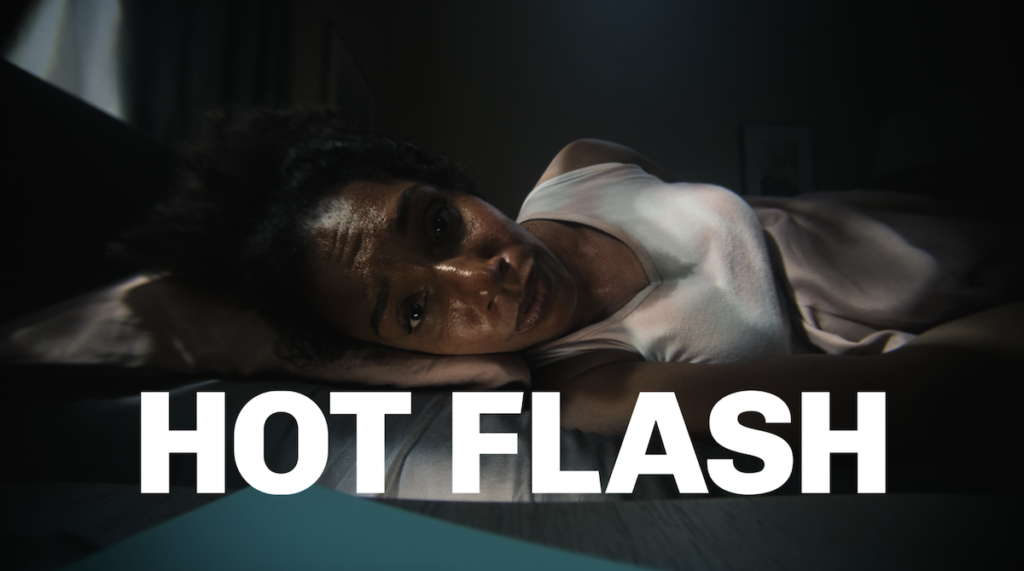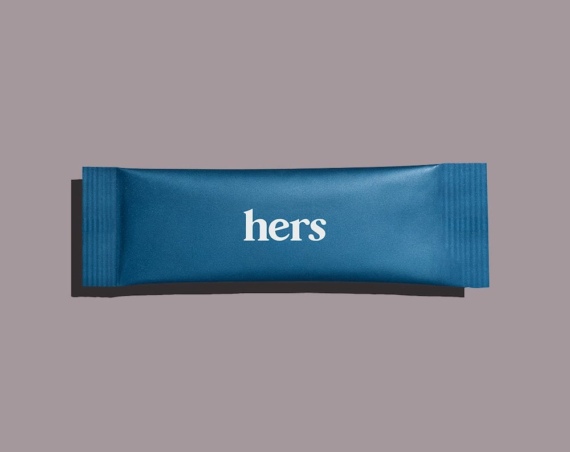This year pharma company Astellas is returning to the Superbowl to help educate game viewers about VEOZAH and vasomotor symptoms (VMS), the most commonly reported menopause symptoms. The “Fewer Hot Flashes, More Not Flashes” ad features women experiencing common moderate to severe hot flash and night sweat moments that impact their daily lives.
VEOZAH, a nonhormonal treatment recently greenlit by the FDA, promises to alleviate the frequency and intensity of vasomotor symptoms (VMS) — the hot flashes and night sweats often experiences by women going through menopause. The ad, titled “Fewer Hot Flashes, More Not Flashes,” aims to resonate with millions of women who face these challenges daily, as well as inform their partners, friends, and family members.
The “Fewer Hot Flashes, More Not Flashes” commercial seeks not only to educate but also to empower. It presents a series of relatable scenarios to illustrate how VEOZAH can potentially reduce the interruptions caused by moderate to severe VMS, coining the term “not flash” for moments free from these symptoms. This campaign is part of Astellas’ broader effort to encourage women to speak out and consult healthcare providers about suitable treatment options.
To learn more about the story behind the campaign, we caught up with Jill Jaroch, Senior Director, Women’s Health & Urology Marketing, at Astellas.

Jill, the Super Bowl is one of the most watched events in the U.S. Can you share the strategic thinking behind choosing this platform to debut the new cut of the VEOZAH ad and how it aligns with Astellas’ objectives in women’s health awareness?
Super Bowl LVIII is expected to reach millions of viewers across the U.S., and approximately half of the U.S. audience are women. The number of women involved in the football community also continues to increase – from coaches to employees to fans.1 As a result, the topic of women’s midlife health is more relevant to the football community than ever before, making the Super Bowl a tremendous platform to educate US audiences about VMS due to menopause and VEOZAH and spark necessary conversation.
At Astellas, our mission is to deliver innovative therapies in areas of unmet need that have been underserved, including women’s midlife health. This campaign is a testament to our commitment and we’re proud to raise awareness around moderate to severe VMS due to menopause and VEOZAH as a treatment option.
The “Fewer Hot Flashes, More Not Flashes” campaign takes a direct approach to addressing menopause symptoms like hot flashes and night sweats. What was the inspiration behind this campaign, and how was it developed to resonate with women experiencing these symptoms?
The inspiration behind the “Fewer Hot Flashes, More Not Flashes” concept was a core tension – discovered through expansive qualitative market research and social listening – that women believe nothing can be done about their VMS. When women with moderate to severe VMS due to menopause are not having a hot flash, that’s a not flash.
We hope viewers walk away with greater awareness of moderate to severe VMS due to menopause and VEOZAH. We want women to feel acknowledged, validated and, most importantly, empowered to talk openly about their experiences and to have more informed discussions with their healthcare providers about whether VEOZAH is right for them.
The campaign aims to empower women to have more informed discussions with their healthcare providers. What challenges do women typically face in seeking treatment for menopause symptoms, and how does VEOZAH intend to address these challenges?
Many women believe nothing can be done about their hot flashes and are reticent to seek help, but fewer interruptions from moderate to severe VMS due to menopause can be possible.2,3 It’s important that women have treatment options that help meet their needs based on their personal and family medical history and their personal choices.
This campaign is designed to reach a diverse group of women in the U.S. impacted by moderate to severe VMS due to menopause who are looking for a nonhormonal prescription treatment option.3 In the U.S., nearly half of women going through menopause may experience moderate to severe VMS, and Black and Hispanic women often experience VMS earlier and longer than Caucasian and Asian women.4,5,6 We recognize the importance of representing diverse women experiencing a hot flash turned not flash.
We want to encourage women in the U.S. to speak up and seek appropriate treatment options with their healthcare providers.
With nearly half of U.S. women going through menopause experiencing moderate to severe vasomotor symptoms, what impact do you hope the VEOZAH campaign will have on public awareness and the conversation around menopause?
At Astellas, we want all women to feel heard and their unique needs to be validated, which is why we are continuing to elevate this conversation. We hope viewers walk away with greater awareness of moderate to severe VMS due to menopause and for women to feel empowered to talk openly about their experiences and to have more informed discussions with their healthcare providers about whether VEOZAH is right for them.
Astellas has a commitment to educating on menopause symptoms. Beyond the Super Bowl ad, what other initiatives or programs is Astellas involved in to support women’s health and education in this area?
This ad is part of a larger direct-to-consumer campaign that also includes:
- A multi-platform social media program, including content across TikTok, Facebook, Instagram and Pinterest.
- Community building elements, including a patient experience program, “Via VEOZAH,” to support women on their hot flash journey.
- Educational content on VEOZAH.com to educate and validate women experiencing moderate to severe hot flashes and/or night sweats, introduce VEOZAH as a potential treatment option, and to provide resources to help them have discussions with their healthcare providers about their experience with hot flashes.

- The 2023 Racial and Gender Report CardTM National Football League, The Institute for Diversity and Ethics in Sports. https://www.tidesport.org/_files/ugd/326b62_f8ae68d67f744fdbba5962c84b43f3bf.pdf
- Parish SJ, Nappi RE, Kingsberg S. Perspectives on counseling patients about menopausal hormone therapy: strategies in a complex data environment. Menopause 2018;25(8):937-49.
- Veozah [package insert]. Northbrook, IL: Astellas Pharma US, Inc.
- Freeman EW, Sammel MD, Sanders RJ. Risk of long-term hot flashes after natural menopause: evidence from the Penn Ovarian Aging Study cohort. Menopause 2014;21(9):924-32.
- Utian WH. Psychosocial and socioeconomic burden of vasomotor symptoms in menopause: a comprehensive review. Health Qual Life Outcomes 2005;3:47.
- Avis NE, Crawford SL, Greendale G, et al. Duration of menopausal vasomotor symptoms over the menopause transition. JAMA Intern Med 2015;175(4):531-9



